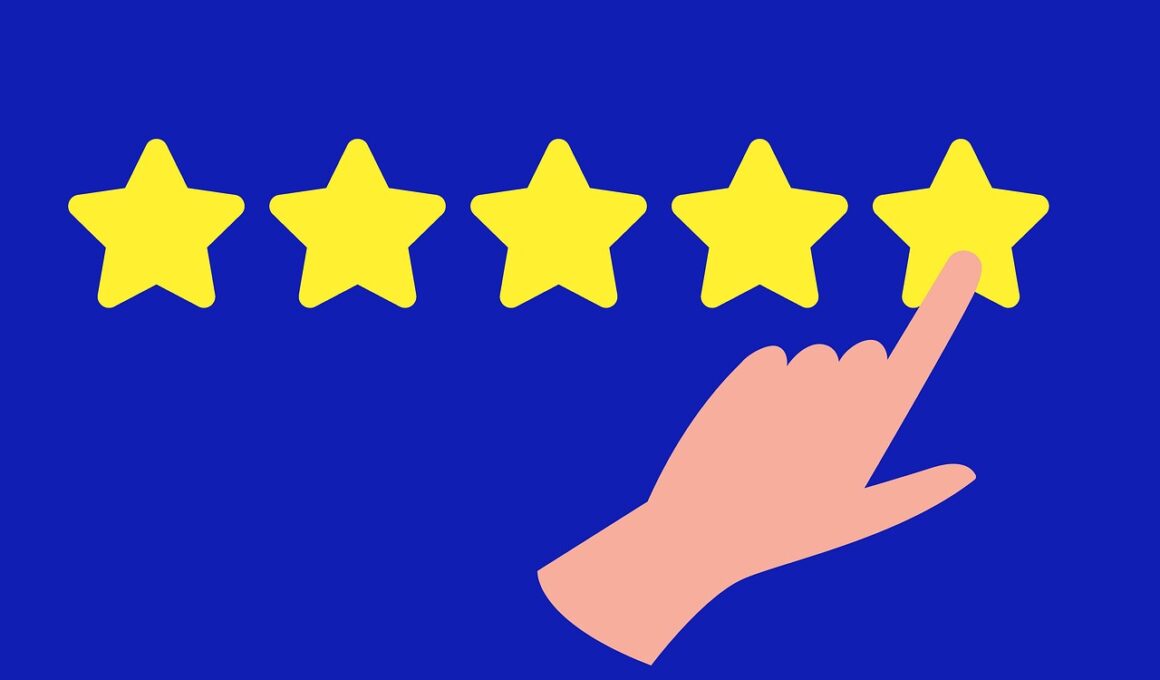Best Tools for Monitoring Nonprofit Online Reputation
For nonprofits, maintaining a positive online reputation is essential in today’s digital landscape. Negative reviews or unpleasant comments can significantly impact a nonprofit’s ability to attract volunteers, donors, and community support. Numerous tools are available to help organizations manage their online reputation effectively. One of the most widely used tools is Google Alerts, which allows nonprofits to monitor mentions of their organization across the web. By setting up alerts, organizations can quickly respond to discussions and mitigate potential damage. Another effective tool is Social Mention, providing real-time analysis of social media mentions, helping organizations gain insights into public perceptions. Additionally, Hootsuite can aid in monitoring social networks and scheduling posts while tracking interactions. Many nonprofits also rely on Reputology to consolidate their online reviews across various platforms, ensuring a comprehensive understanding of community feedback. Each of these tools facilitates timely responses to any negative sentiments while providing valuable insights to foster a positive public image. Nonprofits can significantly enhance their visibility and impact through effective online reputation management strategies.
Keeping track of an organization’s online reputation requires consistent effort. Brand24 is another robust tool providing extensive media monitoring capabilities. With functionalities like social media tracking, this platform allows nonprofits to discover what is said about them online. It captures mentions from various sources and aggregates them into actionable insights. Using Brand24, a nonprofit can identity trends, analyze sentiment, and customize reports that spotlight their audience’s perception. Likewise, Talkwalker provides another excellent service, focusing on social media, blogs, and forums to compile data. Its advanced analytics capabilities make it easy for organizations to visualize their social presence and identify potential issues early. Additionally, ReviewTrackers plays a vital role in aggregating reviews from over 100 different platforms, giving nonprofits a comprehensive view of community feedback. Through engaging with constituents and addressing concerns raised in the feedback, organizations can actively grow their reputation. These tools, when utilized effectively, provide nonprofits with a strategic edge over the challenges posed by negative online sentiments and foster sustainable community relationships.
Another critical aspect of online reputation management for nonprofits involves consistent engagement. Utilizing platforms like BuzzSumo can provide organizations with insight into trending topics relevant to their missions. By knowing what content resonates with their audience, nonprofits can publish articles and social media posts that highlight their values and efforts. Engaging content not only showcases the organization’s work but also encourages discussions, leading to positive reinforcement from the community. Nonprofits can harness tools such as Reevoo to analyze user-generated content and feedback, helping them understand their strengths and weaknesses. Constructive feedback contributes to overall strategy refinement. Furthermore, organizations can employ SEMrush for keyword analysis and SEO ranking improvements, increasing their visibility on search engines. By optimizing content, nonprofits can control their digital narrative better, ensuring that positive messages about their work are prioritized. Continual improvement and adaptive strategies provide nonprofits realms of opportunity to handle any reputational challenges and excel in their respective fields effectively.
Leveraging Social Media for Reputation Management
Social media channels play a crucial role in how nonprofits manage their online presence. With platforms like Facebook, Twitter, and Instagram, organizations can engage with their audience and share their impacts. Using social media management tools like Buffer simplifies managing multiple accounts. Through timed postings, nonprofits can maintain a vibrant and responsive community presence. Moreover, utilizing the analytics tools available on social platforms can provide insights into audience interactions and demographic specifics. Additionally, beyond just posting content, organizations can proactively respond to comments and reviews, establishing a two-way dialogue with stakeholders. This type of engagement can transform negative sentiments into positive conversations. To enhance engagement, nonprofits might also consider using Canva to create visually appealing graphics and campaigns that capture audience interest. Effective imagery contributes significantly to audience interaction and helps in communicating their mission clearly. Regular engagement paired with strategic content creation serves as an excellent framework for building a positive online reputation, fostering trust, and enhancing community support for their initiatives.
Monitoring what is said about a nonprofit organization is key to its reputation management strategy. Tools like Mention can provide real-time monitoring, ensuring that organizations receive immediate notifications of mentions across platforms. Being alerted early allows nonprofits to address issues promptly, reducing the potential for negative perceptions to grow. Moreover, the Netlytic tool can assist organizations in analyzing social media conversations, enabling them to identify key influencers and understand community sentiment better. This qualitative analysis helps in measuring the community’s overall direction, allowing for timely adjustments in engagement strategies. Another useful tool is Awario, which combines social listening with engagement functionalities. Nonprofits can engage with mentions directly from the platform, facilitating proactive relationship building. Additionally, having robust analytics can assist nonprofits in making data-driven decisions, ensuring that their outreach efforts align closely with community interests and values. By continuously utilizing these tools to monitor and engage with stakeholders, organizations can ensure that their online reputation remains solid and trusted throughout their operations.
Effective online reputation management doesn’t solely rely on monitoring; proactive engagement is equally crucial. Nonprofits can utilize email marketing tools like Mailchimp to reach out to supporters and provide regular updates on their projects and successes. Maintaining a direct line of communication with stakeholders helps in building strong, trust-based relationships. Moreover, storytelling can be a powerful tool in shaping perceptions, and nonprofits can utilize platforms like Storyteller to share impactful narratives. Through compelling stories, organizations can connect with their audience on an emotional level, often leading to increased support and donations. Furthermore, conducting regular surveys can give nonprofits insight into their community’s feelings and expectations. This data can help refine strategies and improve service delivery, demonstrating responsiveness to public feedback and concerns. By prioritizing transparency and open communication channels, nonprofits can effectively manage their online reputation. Collectively, these strategies not only mitigate the risk associated with negative reviews but also invite positive visibility through authentic engagement efforts.
Conclusion and Future Directions
To conclude, the landscape of online reputation management for nonprofits is multifaceted and requires diligence. Efforts in this area not only preserve organization visibility but also contribute to sustained community trust and partnership. Nonprofits should consider integrating various tools discussed into their strategies to enhance their ability to understand and respond to public sentiments. By combining monitoring tools with effective storytelling and engagement strategies, organizations can create a robust framework to manage their reputations positively. Nonprofits that leverage social media, streamline communication channels, and foster genuine community engagement often experience heightened support and loyalty. Additionally, embracing innovative tools and analytics will be crucial as the digital realm continues to evolve. Nonprofits should frequently reevaluate their online strategies to stay ahead of trends and challenges in public perception. By fostering a proactive approach, nonprofits can build enduring relationships with their audience, ensuring their core mission and values remain visible and appreciated. Ultimately, through consistent assessment and engagement, nonprofits will thrive in successfully managing their online reputations.
Additionally, in an era of digital transformation, nonprofits must recognize the critical importance of online reputation management. Awareness of how perceptions manifest online can significantly influence their success. By utilizing a combination of tools for monitoring and responsive strategies, nonprofits can create a favorable image within their community while addressing any potential issues effectively. Selection of the right tools tailored to specific organizational needs can greatly enhance ability to engage with stakeholders and strengthen positive relationships. Continuous training on managing perceptions, improving communication skills, and responsiveness to feedback will empower nonprofits to create impactful online narratives. A solid blend of monitoring, engagement, and strategy will prepare organizations to anticipate challenges and harness opportunities presented by digital platforms. Thus, nonprofits are encouraged to develop a comprehensive online reputation management plan that integrates positive communications and proactive engagement efforts. Through a focus on nurturing community trust and advocacy, nonprofits can ensure their missions resonate across all channels. By continually assessing and refining their approach and leveraging available resources, organizations will effectively navigate the digital landscape and maintain a strong and positive online presence.


